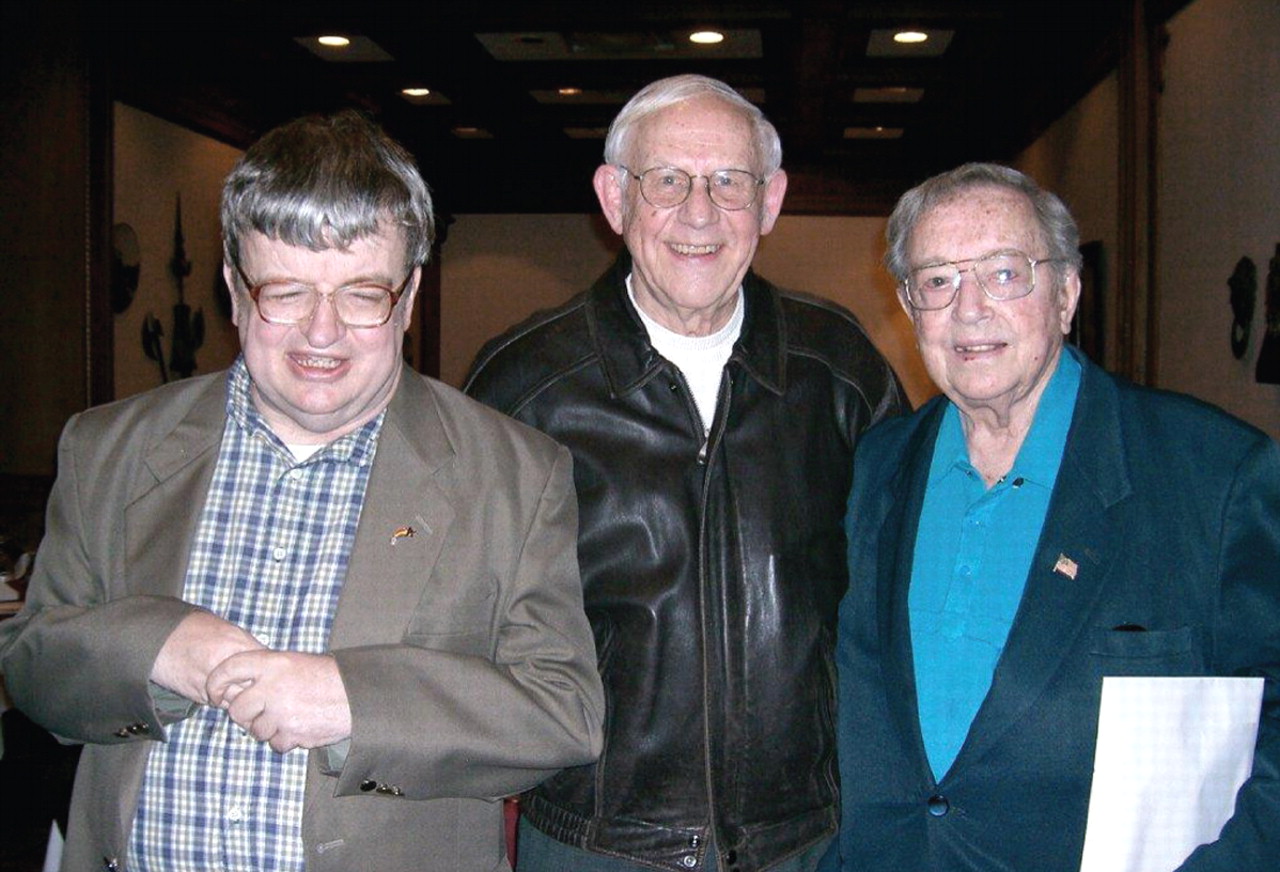Rain Man's Inspiration
In the 1987 movie “Rain Man,” a waitress in a diner brings a box of toothpicks to the table and accidentally spills them on the floor. Raymond Babbit, a savant played by Dustin Hoffman, studies them on the floor and instantly calculates the number: “246 toothpicks.”
His cocksure, manipulative brother Charlie (played by Tom Cruise) asks the waitress how many toothpicks the box holds. When she tells him 250, Charlie—skeptical of his brother's quirky certainty—says a bit triumphantly, “Pretty close, Ray.”
But as he walks away, the waitress calls after him, “There's four left in the box.”
The story told in “Rain Man” was a Hollywood fabrication, but the character of Raymond Babbit was inspired by a flesh-and-blood individual, Kim Peek, whose remarkable talents despite very severe disabilities closely mirrored those portrayed in the film.

Darold Treffert, M.D. (middle), is photographed with Kim Peek (left), who was the inspiration for the character with savant syndrome in the movie “Rain Man.” At right is Peek's father.
Peek, who died in December 2009 of a heart attack at age 58, was born with macrocephaly and congenital brain abnormalities including the absence of a corpus callosum. But from an early age, Peek had a prodigious memory, and as an adult he read and memorized whole books, as well as enormous amounts of information about obscure topics. With his father, he travelled and spoke about his condition in the wake of the notoriety that came with “Rain Man.”
Psychiatrist Darold Treffert, M.D., who served as a consultant for the film script, called “Rain Man” a “remarkably accurate and sensitive” portrayal of savant syndrome. He said the film served as an enormously successful public-education tool.
Treffert befriended Kim and his father—as he has several other savants—and hosted a presentation by the two in 2008 for the Wisconsin Medical Society. “When I first became interested in savant syndrome 40 years ago, it was as a clinician interested in the brain,” Treffert told Psychiatric News. “But as I've met these people, I've learned much more about matters of the heart than the brain. A real satisfaction has been seeing how parents of these remarkable people don't dwell on disabilities; instead they unconditionally accept, nurture, and appreciate the abilities that so marvelously exist.” 



